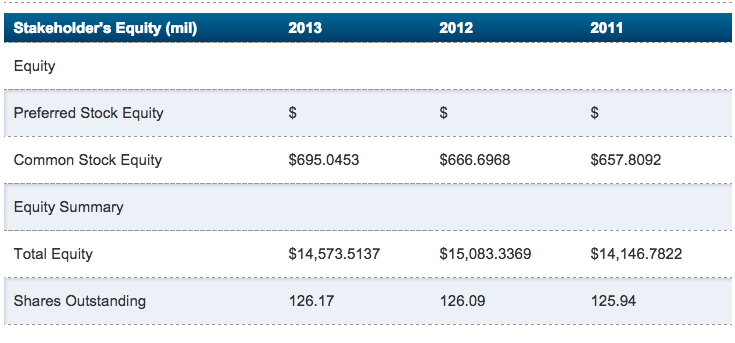Crack The Code: 5 Do's And Don'ts To Land Your Dream Private Credit Job

Table of Contents
Do's to Maximize Your Private Credit Job Prospects
Landing your ideal private credit analyst, associate, or manager position requires proactive effort. Here are key actions to boost your chances:
Do: Network Strategically
Networking is paramount in the private credit world. Building genuine relationships can significantly increase your chances of finding and securing a role.
- Attend Industry Events: Private credit conferences, workshops, and industry meetups offer invaluable networking opportunities. These events allow you to connect with professionals, learn about new trends, and showcase your expertise.
- Leverage Online Platforms: LinkedIn is a powerful tool. Join relevant groups focused on private credit, actively participate in discussions, and connect with professionals in the field.
- Informational Interviews: Don't underestimate the power of informational interviews. Reach out to professionals in private credit for brief conversations to learn about their experiences and gain insights into the industry. This demonstrates initiative and builds relationships.
- Target Your Efforts: Don't cast a wide net. Focus your networking efforts on specific firms and roles that align with your career goals and expertise. Research the firms thoroughly before reaching out.
Do: Highlight Relevant Skills and Experience
Your resume and cover letter are your first impression. Make them count by emphasizing skills directly relevant to private credit.
- Showcase Quantifiable Results: Instead of simply listing your responsibilities, quantify your achievements. For example, "Increased portfolio returns by 15% through effective credit analysis and risk management" is far more impactful than "Managed a portfolio of assets."
- Emphasize Key Skills: Focus on skills like financial modeling, underwriting, credit analysis, debt structuring, portfolio management, and due diligence. These are highly sought-after skills in private credit.
- Transferable Skills: Highlight experience from related fields such as investment banking, corporate finance, accounting, or asset management. These experiences demonstrate transferable skills valuable in private credit.
- Use Keywords: Incorporate keywords commonly found in private credit job descriptions into your resume and cover letter to improve your chances of getting noticed by applicant tracking systems (ATS).
Do: Master the Art of the Private Credit Interview
The interview stage is crucial. Preparation and confidence are key.
- Practice Behavioral Questions: Prepare for behavioral interview questions using the STAR method (Situation, Task, Action, Result). This demonstrates your problem-solving abilities and experience.
- Technical Proficiency: Be prepared to answer detailed technical questions about financial modeling, credit analysis, leveraged buyouts, valuation methodologies, and current market trends in private credit.
- Company Research: Thoroughly research the firm's investment strategy, portfolio, recent transactions, and culture. Demonstrating genuine interest is vital.
- Ask Insightful Questions: Prepare thoughtful questions about the role, the firm's investment strategy, the team dynamics, and the firm's culture. This shows your engagement and interest.
Do: Tailor Your Application Materials
Generic applications rarely succeed. Personalize each application to resonate with the specific firm and role.
- Customize Your Resume: Tailor your resume to each job description, highlighting the skills and experiences most relevant to the specific requirements.
- Craft a Compelling Cover Letter: Don't just reiterate your resume. Use your cover letter to showcase how your skills and experience align with the firm's investment strategy and values.
- Proofread Meticulously: Errors in grammar and spelling can damage your credibility. Proofread carefully, and consider having someone else review your materials.
Do: Develop Specialized Knowledge
Continuous learning is essential in the dynamic private credit market.
- Stay Updated: Regularly follow industry news, publications, and research to stay abreast of market trends, regulatory changes, and new investment strategies.
- Professional Certifications: Consider pursuing relevant certifications such as the Chartered Financial Analyst (CFA) charter or the Chartered Alternative Investment Analyst (CAIA) designation to enhance your credibility and expertise.
- Deepen Your Knowledge: Develop a strong understanding of various private credit strategies, including direct lending, mezzanine financing, distressed debt, and private equity.
- Master Financial Concepts: A solid grasp of financial markets, economic principles, and accounting standards is fundamental.
Don'ts That Can Sink Your Private Credit Job Application
Avoiding these common pitfalls will significantly improve your chances.
Don't: Neglect the Importance of Networking
Networking is not optional; it's essential.
- Don't Rely Solely on Online Job Boards: While online job boards can be useful, they shouldn't be your only job search strategy. Networking significantly broadens your reach and introduces you to unadvertised opportunities.
- Don't Underestimate Referrals: Referrals often carry significant weight. Leverage your network to obtain referrals from people who know you and can vouch for your skills and experience.
- Don't Be Afraid to Reach Out: Don't hesitate to reach out to professionals, even if you don't have a direct connection. Many professionals are willing to offer guidance and advice.
Don't: Submit Generic Applications
Each application should be unique and tailored to the specific opportunity.
- Avoid Generic Materials: Using the same resume and cover letter for multiple applications shows a lack of effort and personalization.
- Address Specific Requirements: Carefully review the job description and address all the specific requirements mentioned. Highlight how your skills and experience meet those requirements.
Don't: Underprepare for Interviews
Thorough preparation is key to a successful interview.
- Research the Firm: Don't go into an interview without having thoroughly researched the firm, its investment strategy, recent transactions, and team members.
- Practice Your Answers: Practice answering common interview questions, including behavioral questions and technical questions related to private credit.
- Prepare Questions to Ask: Asking insightful questions demonstrates your interest and engagement.
Don't: Ignore Market Trends
Staying informed is crucial in this dynamic field.
- Stay Updated on Market Developments: Keep abreast of the latest news, trends, and regulatory changes affecting the private credit market.
- Understand Investor Preferences: Be aware of the evolving preferences and strategies of investors in the private credit space.
- Analyze the Competitive Landscape: Understand the competitive landscape and how your skills and experience differentiate you from other candidates.
Don't: Undersell Yourself
Confidence and self-awareness are essential.
- Highlight Your Accomplishments: Don't be shy about showcasing your accomplishments and highlighting your strengths.
- Don't Downplay Your Experience: Present your experience in a positive and confident manner, emphasizing the value you can bring to a firm.
- Negotiate Your Compensation: Don't be afraid to negotiate your salary and benefits package, ensuring it aligns with your experience and market value.
Conclusion
Securing a dream private credit job requires a multifaceted approach. By actively networking, tailoring your application materials, mastering the interview process, and continuously developing your knowledge, you significantly increase your chances of success. Remember, the private credit job market is competitive, but with a strategic and proactive approach, you can crack the code and land your dream private credit job. Ready to crack the code and land your dream private credit job? Start by implementing these do's and don'ts today and elevate your job search strategy. Good luck!

Featured Posts
-
 Le Conseguenze Economiche Delle Tariffe Trump Del 20 Sul Settore Moda
May 24, 2025
Le Conseguenze Economiche Delle Tariffe Trump Del 20 Sul Settore Moda
May 24, 2025 -
 Understanding The Philips 2025 Annual General Meeting Agenda
May 24, 2025
Understanding The Philips 2025 Annual General Meeting Agenda
May 24, 2025 -
 Kering Stock Drops 6 On Weak First Quarter Results
May 24, 2025
Kering Stock Drops 6 On Weak First Quarter Results
May 24, 2025 -
 Analisi Borsa Fed Banche Italiane E Il Futuro Di Piazza Affari
May 24, 2025
Analisi Borsa Fed Banche Italiane E Il Futuro Di Piazza Affari
May 24, 2025 -
 Philips 2025 Agm Key Announcements And Shareholder Information
May 24, 2025
Philips 2025 Agm Key Announcements And Shareholder Information
May 24, 2025
Latest Posts
-
 Planning For Memorial Day 2025 Weekend Dates And Significance
May 24, 2025
Planning For Memorial Day 2025 Weekend Dates And Significance
May 24, 2025 -
 Memorial Day 2025 Date And Observance Information
May 24, 2025
Memorial Day 2025 Date And Observance Information
May 24, 2025 -
 Sandy Point Rehoboth Ocean City Beaches Memorial Day Weekend 2025 Weather Prediction
May 24, 2025
Sandy Point Rehoboth Ocean City Beaches Memorial Day Weekend 2025 Weather Prediction
May 24, 2025 -
 2025 Memorial Day Weekend Beach Weather Forecast For Ocean City Rehoboth And Sandy Point
May 24, 2025
2025 Memorial Day Weekend Beach Weather Forecast For Ocean City Rehoboth And Sandy Point
May 24, 2025 -
 Memorial Day Weekend 2025 Beach Forecast Ocean City Rehoboth Sandy Point
May 24, 2025
Memorial Day Weekend 2025 Beach Forecast Ocean City Rehoboth Sandy Point
May 24, 2025
